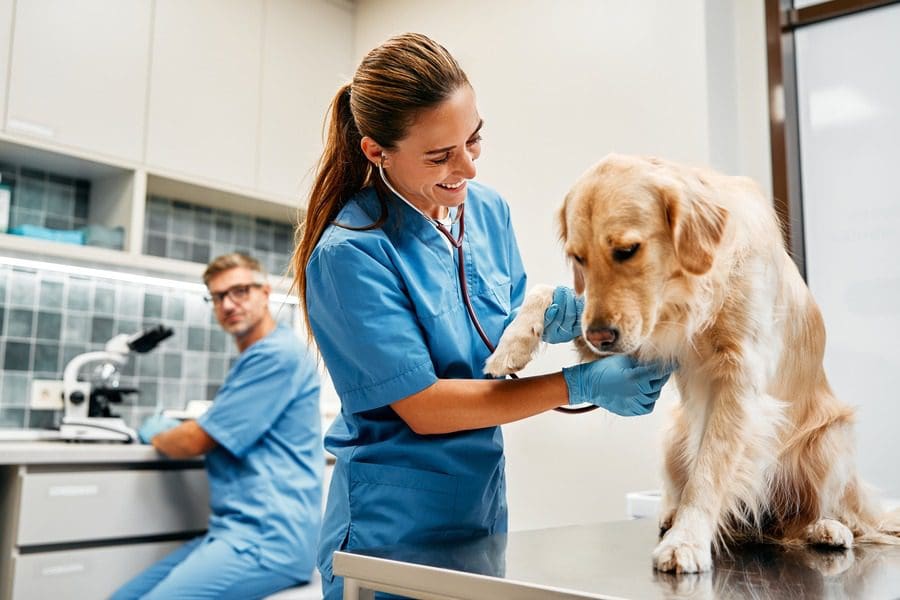Our fur babies are our everything. They truly are part of the family, and the idea of them getting sick, injured, or worse can bring a pet owner to tears. Four-legged friends can make it hard to spot illness or pain because they are masters at hiding symptoms of stress; it’s in their wiring. However, awareness of these symptoms is key to catching problems early. In addition to annual checkups, knowing what to look for will help keep your dog or cat healthy. Here are some tips.
Cats
Changes in your cat can let you know they are not feeling well. For example:
- Change in sociability
- Change in appearance
- The look of the coat or the amount of shedding
- Excessive grooming
- Decreased energy
- Difference in litter use
- Shift in appetite
- Discharge from the eyes or nose
- Withdrawing and hiding
Other changes you may notice in your cat are a head tilt, a change in posture, carrying their tail differently, or dehydration, which can cause panting, sunken eyes, refusal to eat, tacky or dry gums, and energy loss. You can also do a “tenting” test on your cat’s skin by gently pinching them near their shoulder blades and lifting slightly. They are likely well-hydrated if the skin snaps back quickly, but if it stays raised (“tents up”), they could be dehydrated.
Dogs
Sickness or pain in dogs can cause stress, often expressed by pacing, shedding, whining, or barking. Other symptoms may include:
- Withdrawing
- Licking where you notice hair removal or skin damage
- Panting and grimacing
- Yawning
- Abnormal posture
- Uncharacteristic aggression
These signs are subtle and may not appear all at once. If you feel something seems off, it’s better to take your pet to the vet sooner rather than later.
Prepare for the Vet Visit
If your kitty is sick, a carrier with a removable top is an excellent option because it allows your cat to stay comfy while your vet examines them from above. Make the carrier cozy with their bed or blankets with a familiar scent.
Our Pick: Amazon Basics Top-Load Hard-Sided Travel Carrier ($27.25, shop here)
When taking your doggy to the vet, come prepared with treats and toys for positive reinforcement. To avoid motion sickness, don’t feed them within 30 minutes of going to the appointment. Some pets are particularly anxious about visiting the vet. If that is the case, your provider may prescribe anxiety medication.
If you have any questions about your pet’s behavior, symptoms, or medications, contact your vet.






